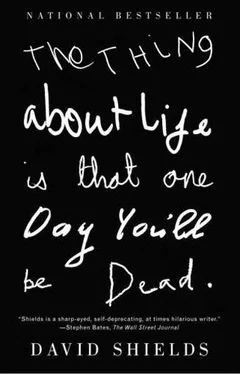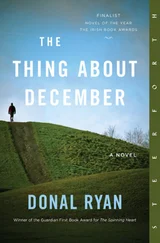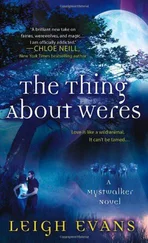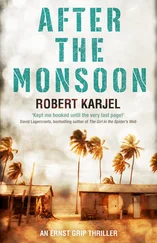Aubrey de Grey, a geneticist at the University of Cambridge, says, “In principle, a copy of a living person’s brain—all trillion cells of it—could be constructed from scratch, purely by in vitro manipulation of neurons into a synaptic network previously scanned from that brain.”
João Pedro de Magalhães, a research fellow in genetics at Harvard Medical School, says, “Aging is a sexually transmitted disease that can be defined as a number of time-dependent changes in the body that lead to discomfort, pain, and eventually death. Maybe our grandchildren will be born without aging.”
Robert Freitas Jr., a senior research fellow at the Institute for Molecular Manufacturing, says, “Using annual checkups and cleanouts, and some occasional major repairs, your biological age could be restored once a year to the more or less constant physiological age that you select. I see little reason not to go for optimal youth, though trying to maintain your body at the ideal physiological age of ten years old might be difficult and undesirable for other reasons. A rollback to the robust physiology of your late teens or early twenties would be easier to maintain and much more fun.” Tee-hee. “That would push your expected age of death up to around 700 to 900 calendar years. You might still eventually die of accidental causes, but you’ll live ten times longer than we do now.
“How far can we go with this? If we can eliminate 99 percent of all medically preventable conditions that lead to natural death, your healthy life span, or health span, should increase to about 1,100 years. It may be that you’ll find it hard to coax more than a millennium or two out of your original biological body, because deaths from suicides and accidents have remained stubbornly high for the last 100 years, falling by only one third during that time. But our final victory over the scourge of natural death, which we shall achieve later in this century, should extend the health spans of normal human beings by at least tenfold beyond its current maximum length.”
Would life get intolerably boring if you lived for a couple of millennia? In the first century B.C., Pliny the Elder, the Roman encyclopedist, wrote of people in previous times who, exhausted by life at age 800, leaped into the sea.
My father now, at 97, seems bored beyond belief—virtually without a single interest or enthusiasm other than continued existence, day after day after day. In The Body in Pain, Elaine Scarry says, “As the body breaks down, it becomes increasingly the object of attention, usurping the place of all other objects, so that finally, in very, very old and sick people, the world may exist only in a circle two feet out from themselves; the exclusive content of perception and speech may become what was eaten, the problems of excreting, the progress of pains, the comfort or discomfort of a particular chair or bed.” This is what is suddenly happening to my dad, who until the past few months had still been exercising as if in preparation for a geezers’ Ironman competition.
Marc Geddes, a New Zealand writer on artificial intelligence and mathematics, suggests the possibility of “brain refresher drugs,” which will prevent “brains from becoming too inflexible. The people living in the far future might be able to alter their bodies and personalities as easily as the people of today change their clothes. The fact that some people living today get tired of life is more likely to be a practical, biological problem than a philosophical one.”
Sherwin Nuland, the author of How We Die, says about Kurzweil and his fellow fantasists, “They’ve forgotten that they’re acting on the basic biological fear of death and extinction, and it distorts their rational approach to the human condition.”
Exhibit A: Leonard Hayflick, professor of anatomy at University of California–San Francisco, a couple of whose public lectures my father has attended, explains that every chromosome has tails at its end that get shorter as a cell divides. Over time, these tails, called telomeres, become so short that their function is disrupted, and this, in turn, leads the cell to stop proliferating. Average telomere length, therefore, gives some indication of how many divisions the cell has already undergone and how many remain before it can no longer replicate. I.e., there’s an intrinsic limit to how long humans can live.
In Tennyson’s Tithonus, the eponymous protagonist, who is granted his wish of immortality without realizing he’d be aging forever, decides he wants to die:
…Let me go: take back thy gift.
Why should a man desire in any way
To vary from the kindly race of men,
Or pass beyond the goal of ordinance
Where all should pause, as is most meet for all?
Release me, and restore me to the ground.
My father doesn’t see it like that. Good for him.
Leonard Bernstein said, “What’s this?”
Babe Ruth said, “I’m going over the valley.”
Cotton Mather said, “Is this all? Is this what I feared when I prayed against a hard death? Oh, I can bear this. I can bear it!”
The Greek philosopher Anaxarchus, pounded to death with pestles in the fourth century B.C., said, “Pound, pound the pouch containing Anaxarchus. You pound not Anaxarchus.”
Air Force Major Norman Basell, flying bandleader Glenn Miller to France on a flight that vanished over the English Channel, said, “What’s the matter, Miller—do you want to live forever?”
The philologist Barthold George Niebuhr, noticing that his medicine was intended only for terminal cases, asked, “What essential substance is this? Am I so far gone?”
Angelica Kauffmann, an eighteenth-century artist, stopped her cousin—who had begun to read her a hymn for the dying—and said, “No, Johann, I will not hear that. Read me the ‘Hymn for the Sick’ on page 128.”
William H. Vanderbilt, president of the New York Central Railroad, said, in 1885, “I have no real gratification or enjoyment of any sort more than my neighbor down the block who is worth only half a million.”
Frederick the Great, King of Prussia, said, “I am tired of ruling over slaves.”
Louise, Queen of Prussia, said, “I am a queen, but I have no power to move my arms.”
Queen Elizabeth I said, “All my possessions for one moment of time.”
Phillip III, king of Spain, said, “Oh would to God I had never reigned. Oh that those years in my kingdom I had lived a solitary life in the wilderness. Oh that I had lived alone with God. How much more secure should I have died. With how much more confidence should I have gone to the throne of God. What doth all my glory profit but that I have so much the more torment in my death?”
Cardinal Henry Beaufort said, “Will not all my riches save me? What, is there no bribing death?”
Henry James said, “So here it is at last, the distinguished thing.”
Anne Boleyn said, “The executioner is, I believe, an expert, and my neck is very slender.”
Marie Antoinette, tripping over her executioner’s foot, said, “Monsieur, I beg your pardon. I did not do it on purpose.”
Charles II said, “I have been a most unconscionable time dying, but I beg you to excuse it.”
Sir William Davenant, seventeenth-century British Poet Laureate, unable to complete a final poem, said, “I shall have to ask leave to desist, when I am interrupted by so great an experiment as dying.”
Rabelais said, “I am going in search of a great perhaps.”
James Thurber said, “God bless. God damn.”
H. G. Wells said, “God damn you all; I told you so.”
Francis Buckland, an inspector of fisheries, said, “God is so good to the little fishes, I do not believe He would let their inspector suffer shipwreck at last.”
Читать дальше












